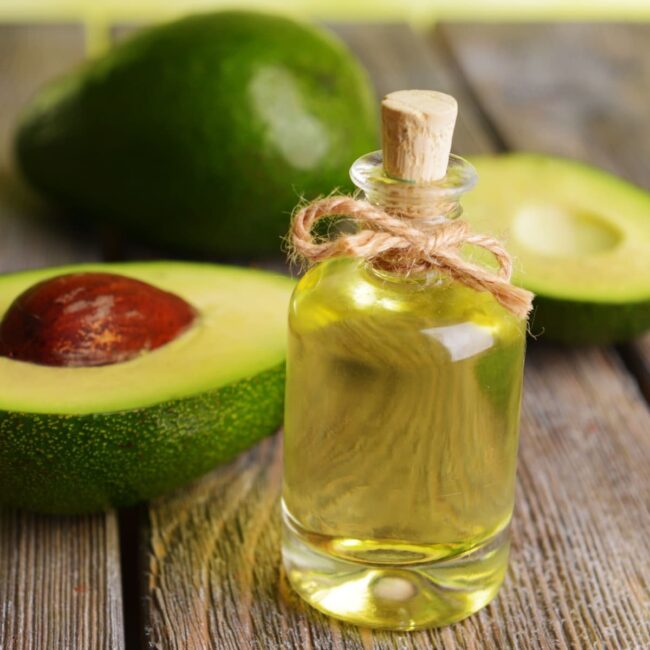8 Healthy Coconut Oil Substitutes for Various Recipes
Coconut oil substitutes: We rank the best based on texture, flavor, and versatility. Some options bring a similar richness, while others offer a lighter, less noticeable taste.
The best alternative depends on whether it's used for frying, baking, or blending into sauces. Some choices maintain the same solid-to-liquid consistency, making them easy to swap.
A few replacements add their own nutritional benefits, enhancing both sweet and savory dishes. These 8 coconut oil substitutes are excellent replacements for any cooking need:
What Is Coconut Oil?
Coconut oil is a versatile ingredient that comes mainly from the flesh of mature coconuts, while virgin coconut oil originates from fresher ones. Both varieties serve as healthier options compared to traditional high-fat oils or spreads.
Despite its benefits, moderation remains essential due to its high fat content; always refer to packaging for serving suggestions. You can incorporate coconut oil into various dishes, enhancing baked goods with its mild sweetness and using it effectively for frying or grilling thanks to its neutral taste.
Here are some excellent alternatives you might consider:
The Best Coconut Oil Substitutes Ranked
Whether you're out of coconut oil or need an alternative, there are plenty of great options. Discover the best substitutes ranked for cooking, baking and more:
Butter
Butter serves as a classic alternative to coconut oil, especially for those without dairy restrictions. This ingredient excels in baking, enhancing the flavor and texture of cookies while harmonizing with sweeter elements.
Its solid state at room temperature provides that desirable chewiness in your favorite treats. While it’s easily found in grocery stores’ chilled sections, moderation is essential due to its higher cholesterol content.
Incorporating butter into your recipes can contribute positively when used wisely, ensuring you maintain a balanced approach to indulgence without compromising health.
Olive Oil
Olive oil serves as a versatile alternative to coconut oil, particularly favored for its widespread availability in most kitchens. You’ll find this liquid gold not only enhances the flavors of various dishes but also aligns perfectly with plant-based eating habits, making it a great option if you’re avoiding butter.
While olive oil shines in cooking methods like frying and sautéing, its strong flavor can overpower baked goods; therefore, reserving it for savory applications is wise. Nutritionally speaking, olive oil stands out due to its rich content of monounsaturated fats that promote heart health, offering an advantage over coconut oil's higher saturated fat levels associated with elevated cholesterol concerns.
Integrating olive oil into your meals could transform everyday recipes while contributing beneficial nutrients to your diet.
Grapeseed Oil
Grapeseed oil serves as an excellent alternative to coconut oil, particularly known for its light flavor profile that seamlessly blends into dressings and marinades. Its versatility extends beyond cold applications; this oil shines when used in frying or roasting due to its impressive high smoke point, making it ideal for achieving crispy roasted potatoes.
Nutritionally speaking, grapeseed oil is a powerhouse with beneficial polyunsaturated fats that promote heart health and may contribute to lower cholesterol levels. Rich in omega-6 and omega-9 fatty acids, it supports overall well-being while enhancing your culinary creations.
With such unique attributes, incorporating grapeseed oil into your cooking can enhance both flavor and nutrition effortlessly.
Sunflower Oil
Sunflower oil serves as a practical alternative to coconut oil, especially when you find yourself in need of a reliable substitute. Widely available in grocery stores, this versatile oil works best for cooking applications rather than baking.
It shines particularly when frying foods due to its high smoke point, ensuring your dishes achieve that ideal crispy exterior while remaining juicy on the inside. Incorporating sunflower oil into recipes like fries or southern fried chicken guarantees satisfying texture and flavor without overpowering other ingredients.
Additionally, this option is rich in vitamin E, a vital nutrient known for its antioxidant properties and benefits to immune health by supporting blood vessel integrity.
Almond Oil
Almond oil serves as an excellent alternative to coconut oil, enhancing a variety of dishes with its distinct nutty flavor. When it comes to baking, especially in cakes and cookies, substituting almond oil can elevate your creations by perfectly complementing their sweetness.
This versatile oil not only enriches flavors but also contributes positively to heart health due to its low saturated fat content; one tablespoon offers 26% of the daily vitamin E requirement at 5 mg. If you find yourself without coconut oil on hand, reaching for almond oil allows you to maintain deliciousness while introducing subtle yet appealing notes into your recipes.
Incorporating this ingredient opens up new avenues for creativity in the kitchen.
Hemp Seed Oil
Hemp seed oil is a powerhouse ingredient gaining popularity for its impressive health benefits. Renowned for providing all nine essential amino acids, this oil stands out as an exceptional source of protein, boasting 10g per serving.
Those on high-protein or keto diets will appreciate how it keeps you satiated longer while supporting weight management goals. Its rich, earthy flavor makes hemp seed oil an excellent addition to dips, marinades, and pesto; drizzling it over salads or pasta enhances both taste and nutrition seamlessly.
To maximize its nutritional value, remember to use hemp seed oil at room temperature or chilled rather than heated.
Hazelnut Oil
Hazelnut oil is a fantastic alternative to coconut oil, especially for those embracing plant-based cooking. Its rich and nutty flavor enhances baked goods like cookies and cakes, making it an excellent choice for your favorite treats.
Beyond baking, hazelnut oil's high smoke point allows for versatile cooking methods such as frying, roasting, or grilling; its toasted aroma pairs beautifully with various dishes. Nutritionally speaking, this oil stands out due to its abundance of monounsaturated fats, around 80%, which can assist in weight management while promoting heart health by keeping cholesterol levels in check.
If you're looking to add depth and taste to your meals without compromising on wellness benefits, hazelnut oil deserves a spot in your kitchen pantry.
Avocado Oil
Avocado oil serves as an excellent alternative to coconut oil, particularly appealing for those keen on healthy cooking. With its creamy consistency, avocado oil enhances the richness of curries and adds a refreshing taste to salads and soups alike.
The impressive smoke point of 271 degrees makes it suitable for various cooking methods such as sautéing, grilling, or baking your favorite dishes. Health enthusiasts often gravitate toward this versatile option due to its high monounsaturated fat content that aids in reducing inflammation.
Avocado’s rising popularity in brunch menus only emphasizes its culinary versatility while delivering nutritional benefits you’ll appreciate in every meal choice.









